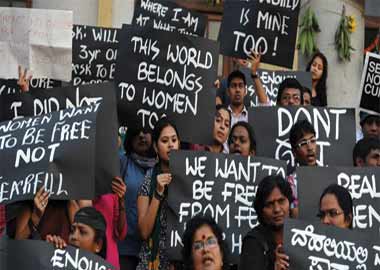
New Delhi, Mar 8: Nine out of 10 women in the national capital feel that Delhi is unsafe or very unsafe for them. Two-thirds have experienced misbehaviour on the city's streets. Two-thirds work in offices where there is no mechanism to deal with sexual harassment. Close to half feel they were discriminated against during the division of parental property.
These are some of the findings of a survey commissioned by TOI on the public and private lives of Delhi's women. The survey clearly shows that while some things may be changing at home and at the workplace, the city still poses significant challenges to a woman. The survey interviewed women across age groups and included both the main city and its satellites.
With this survey, TOI is also kicking off a campaign, 'Delhi For Women', which will look into different aspects of a woman's life and engagement with the city. While safety, in the shadow of the death of Nirbhaya and continuing instances of sexual assault, remains a major consideration, this campaign will not stop there. It will identify various problems that the women of Delhi face - whether during the commute, at work, home or leisure. We hope this will act as a first step towards finding solutions to these problems. Eventually, we hope Delhi will rid itself of the image of being the most unsafe city for women in India.
There is suddenly, energy around changing the status quo. The energy was most evident in the protests that followed Nirbhaya's gangrape, but the impact thankfully lingers.
The capital may have the reputation of being India's most unsafe city for women, but the protests against sexual assault that have rocked the country and forced the government to enact new legislation were also led by Delhi's women. In their fight to demand what is rightfully theirs and to reclaim a city that is equally theirs, The Times of India joins hands with Delhi's women.





Comments
Add new comment